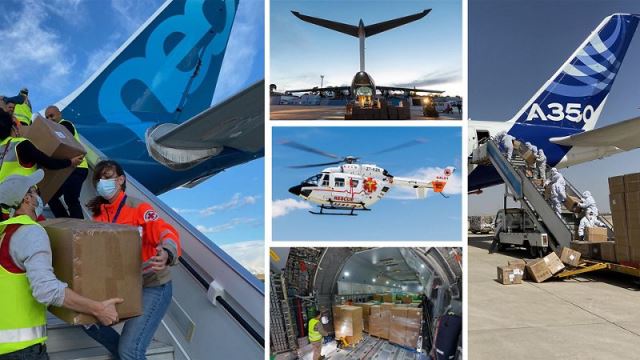Airbus delivered 566 aircraft during 2020, sees government actions setting pace for industry recovery

European airframer Airbus logged 566 aircraft deliveries and picked 268 net orders during 2020. Deliveries were 34pc lower than the 863 commercial aircraft delivered in 2019, reflecting the wider impacts of the Covid-19 pandemic on the travel industry.
The deliveries include Uganda Airlines first A330neo aircraft which was handed over on December 21, arriving in Entebbe the next day.
The deliveries were led by the A320 family of which 446 units were handed over to customers followed by 59 A350’s, 38 A220’s, 19 A330’s, and 4 A380’s. Just over half of all deliveries were during the fourth quarter of the year with December alone seeing 89 aircraft delivered.
Chief Executive Officer Guillaume Faury also sees recovery for recovery starting around 2023/24 window but contingent on how governments adjust Covid-19 travel restrictions.
Speaking during the 2021 annual press conference in Toulouse today, Faury said the results “demonstrate the resilience of Airbus in the most challenging crisis to hit the aerospace industry.
“Many uncertainties remain for our industry in 2021 as the pandemic continues to impact lives, economies and societies. We have issued guidance to provide some visibility in a volatile environment. Over the longer term, our ambition is to lead the development of a sustainable global aerospace industry.”
The company booked 268 net commercial aircraft orders during the year, a deficit of 500 units compared to the 768 aircraft during 2019. The backlog stood at 7,184 commercial aircraft while Airbus Helicopters booked 268 net orders during the year.
Consolidated order intake for the year was valued at EURO 33.3 billion compared to € 81.2 billion in 2019 while the consolidated order book value stood at EURO 373 billion for the accounting period. That compares with EURO 471 billion at the end of 2019.
The decrease in the value of the commercial aircraft backlog reflects the higher number of deliveries compared to order intake, the weakening of the US dollar and an assessment of the backlog’s recoverability, Faury explained.
Consolidated revenues were EURO 49.9 billion compared to EURO 70.5 billion the previous year.
“Given the global business environment, there will be no dividend proposed for 2020. This decision aims at strengthening the Company’s financial resilience by protecting the net cash position and supporting its ability to adapt as the situation evolves, Faury said.
Looking ahead, the company expects to achieve the same number of commercial aircraft deliveries during 2021. Faury also sees the global air travel rebounding to pre-covid19 levels around 2023/24 but that will largely depend on how the vaccine rollout proceed and whether governments will ease the current restrictions such as quarantine on arrival.
Faury said business travel is projected to pick up as the global economy recovers although the longer-term impacts of Covid-19 on leisure travel were yet to be fully understood.

 African Heads of state head to South Korea next week for Summit talks
African Heads of state head to South Korea next week for Summit talks
 Trading leads as main source of income for Ugandans
Trading leads as main source of income for Ugandans
 New leadership for bankers’ umbrella as total assets top $12 billion
New leadership for bankers’ umbrella as total assets top $12 billion
 Brussels Airlines to announce Nairobi service
Brussels Airlines to announce Nairobi service
 SITA promises enhanced travel experience after Materna acquisition
SITA promises enhanced travel experience after Materna acquisition
 Saudia’s 105 aircraft order stretches A320neo lead over rival Max
Saudia’s 105 aircraft order stretches A320neo lead over rival Max
